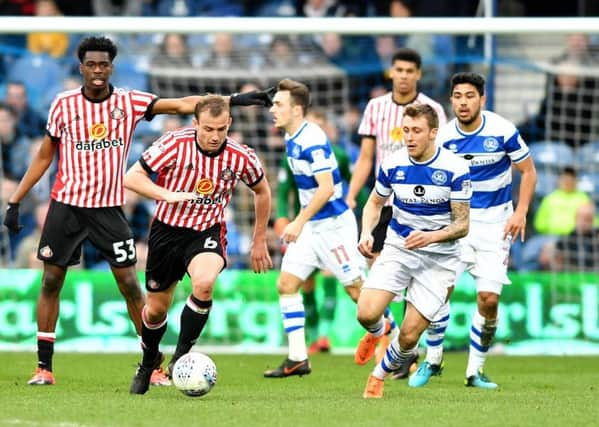Poor discipline and a squad in dire need of investment: Sunderland's recipe for disaster


The Black Cats had not played with any great tempo, but competed and, on the stroke of half-time, Callum McManaman bundled the ball over the line. Having beaten Burton the week before, Coleman and his team looked to be up and away.
It turned out to be a sliding doors moment, reality biting as McManaman saw red for handball and Reading capitalised to win with three second-half goals.
An opportunity missed, a self-inflicted defeat.
Advertisement
Hide AdAdvertisement
Hide AdIt has been that way on too many occasions since and Saturday’s trip to Loftus Road was no different.
The first half had been short on quality from both sides, but, if there was any encouragement to be taken, Sunderland defensively looked as solid as they had done for some weeks.
Keeper Jason Steele was barely tested and, while Alex Smithies was similarly quiet in the QPR goal. Coleman’s post-match assertion that Sunderland had every chance of going on to nick a narrow victory was a fair one.
A long ball from QPR, early in the second half, should have posed little threat, played with neither precision nor purpose.
Advertisement
Hide AdAdvertisement
Hide AdLamine Kone, however, was caught on his heels, allowing Paul Smyth to race towards goal.
Steele then made a disastrous misjudgement, looking on in despair as the ball bounced over his head. With Smyth poised to strike, he thrust out at a hand to deny a goalscoring opportunity and was quickly shown a red card.
QPR’s winning goal followed less than 10 minutes later, Ebere Eze finding it far too easy to play a one-two with Matt Smith on the edge of the area before converting.
Sunderland did show some grit, with Aiden McGeady, George Honeyman and Ovie Ejaria all trying to push them forward, but it was no avail.
The Black Cats again found a way to lose a narrow game.
Advertisement
Hide AdAdvertisement
Hide AdThey have become frustratingly adept at that this season. It was, as Coleman made reference to in his post-match remarks, the fifth time in 21 games since he arrived that Sunderland have had a man sent off.
It cost them against Reading and against QPR, just as it has done on the other three occasions.
At Cardiff, Didier Ndong saw red just minutes after Sunderland went one behind. They lost 4-0.
Against Middlesbrough, they were 1-0 up and defensively in no trouble until Jake Clarke-Salter’s wild challenge on Adama Traore.
Advertisement
Hide AdAdvertisement
Hide AdAt Wolves, they dug in for a superb point after Lee Cattermole’s dismissal, but ill-discipline has cost potentially five crucial points. Add to that the flurry of unforced defensive errors, and the tally multiplies.
Coleman, too, alluded to a lack of confidence in both boxes and here, inevitably, the road leads to Ellis Short.
Steele’s error was the latest in a litany of mistakes between the goalposts that has not only cost points, but spread a nervousness throughout the team and the watching support.
The Black Cats cashed in on Vito Mannone last summer as his contract wound down, but they tried to replace him on the cheap and it has backfired.
Advertisement
Hide AdAdvertisement
Hide AdNo team in football succeeds without a consistent goalkeeper and it is not a position to take chances with.
Nor up front, where Sunderland did not have enough going into the January window and ended up in a weaker position still.
January was Short’s last chance to rectify the mistakes of last summer and properly bolster the ranks.
That he didn’t remains baffling, as he now faces up to the prospect of owning a debt-ridden League One outfit, still seemingly yet to find the bottom of their downward curve.